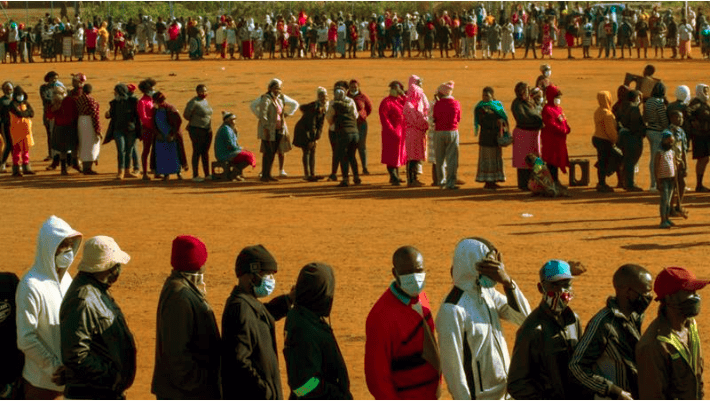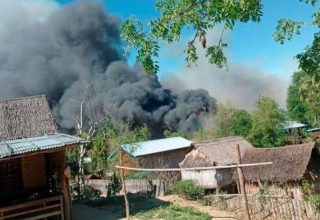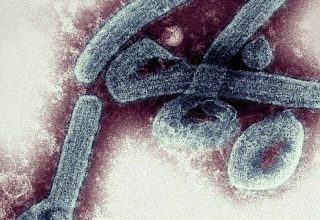
More than a million people across Africa have now been confirmed to have had the new coronavirus, as health experts warn the peak of the pandemic has yet to hit the continent.
The sombre milestone, reported by the Africa Centres for Disease Control and Prevention on Friday, came more than five months after Egypt reported the continent’s first confirmed case of coronavirus on February 14.
More than 22,000 people have so far died across Africa from the COVID-19 disease, while over 690,000 have recovered.
Last month, the World Health Organization (WHO) voiced alarm at the “acceleration” of the disease in Africa, which until recently had remained relatively unscathed by the pandemic compared with the rest of the world – even as many experts believe the actual number of coronavirus infections is likely much higher.
South Africa, which accounts for more than half of the continent’s registered cases, is the worst-affected African nation and the fifth worst-hit globally. Egypt is in second place with 95,000 confirmed infections, followed by Nigeria, Ghana, Algeria, Morocco and Kenya.
“We haven’t seen the peak in Africa yet,” Mary Stephen, technical officer at the WHO’s regional office for Africa, told Al Jazeera.
“Since countries started relaxing lockdown measures, we have seen an increasing number of cases and most of these – more than 80 percent – are coming largely from 10 countries,” she said.

The virus has spread to all 54 countries on the continent of 1.2 billion people, stretching already fragile healthcare systems and crippling economies.
But experts and aid groups believe the actual extent of the contagion is being underestimated because of a lack of testing and poor access to data.
In South Africa, which has a population of 58 million people, some 10 million people have been screened – and more than three million tests have so far been administered, the highest for an African nation.
In Africa’s most populous nation, Nigeria, about 3,000 tests are administered per day on average – a tenth of the number conducted in South Africa, which has about a quarter of the population.
Cameroon, central Africa’s worst-affected country with 17,000 cases, has tested less than one percent of its population of 25 million.
The International Rescue Committee, a global humanitarian aid group, said the testing rates in all the African countries where it operates fall far below WHO guidelines, keeping “responders in the dark about the real spread of the disease”.
Shabir Madhi, a professor of vaccinology at the University of the Witwatersrand in Johannesburg, described the figure of one million COVID-19 cases in Africa as “meaningless”.
“It doesn’t quantify the true magnitude of circulation of the virus,” he told Al Jazeera.
“The absence of testing, unfortunately, is leading to a situation where countries are simply not understanding the impact COVID-19 is currently having and the impact it’s going to have over the course of the next few months,” Madhi said.
The number of deaths among the positive cases, called the case fatality rate, is less than six percent in all African nations.
This is, in part, due to the high percentage of young people in the continent’s population and the lower prevalence of comorbidities – the presence of more than one disease or condition in a patient at the same time, WHO’s Stephen explained.
However, the stigma attached to the virus has made it harder to fight the pandemic, with reports of healthcare workers being discriminated against, patients evicted and some avoiding treatment over fears of hostility across sub-Saharan Africa.
Madhi warned that most African healthcare systems are not fully equipped to deal with “the external shock of COVID-19” and are at a risk of collapsing.
Healthcare workers in a number of countries, speaking to Al Jazeera, have also reported a shortage of personal protective equipment (PPE), inadequate pay, insufficient training and a lack of transparency from governments.
‘Financial crisis’
Almost from the start of the health emergency, WHO had warned of the grave risks COVID-19 could pose to countries with weaker health systems, including in sub-Saharan Africa, where urban crowding and the prevalence of informal economies complicate efforts to stem the spread of the disease.
But as the new coronavirus began tearing across the world, Africa appeared to be spared its rapid spread, giving many governments more time to prepare for a severe outbreak by shutting down borders, banning large gatherings and imposing draconian stay-at-home orders.
Many of the lockdown measures have since been eased, but only after leading to an economic fallout in countries that were already struggling with financial troubles even before the arrival of the coronavirus.
In South Africa, which imposed one of the world’s strictest lockdowns in March, a recent study showed up to three million people lost their jobs over the lockdown period – a disastrous prospect for a country that clocked 30.1 percent unemployment in the first quarter of 2020.
The United Nations has warned that over time, a “full-blown financial crisis” may unfold on the continent.
“The recent devaluation of several African currencies, combined with declining commodity prices, has put further stress on African countries’ capacity to ensure food and nutrition security,” Jennifer Blanke, vice president for Agriculture, Human and Social Development at the African Development Bank, wrote in a recent article.
While lauding the responsive measures and early, swift action at the beginning of the outbreak, WHO’s Stephen said countries must continue to expand their capacities for surveillance, contact tracing, testing, isolation and treatment, especially at the grassroots level. They must also directly engage communities.
“What we have learned from previous outbreaks, like Ebola in 2014,” said Stephen, “is if we limit the spread as quickly as possible, we’ll limit the impact of the outbreak.”
Source: aljazeera.com






















